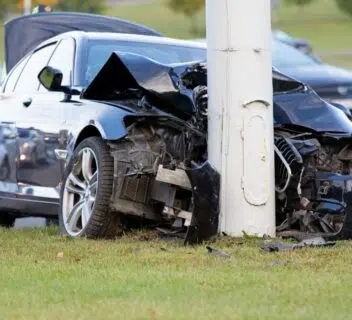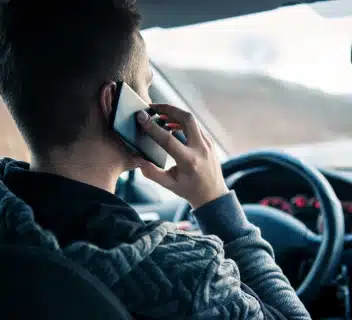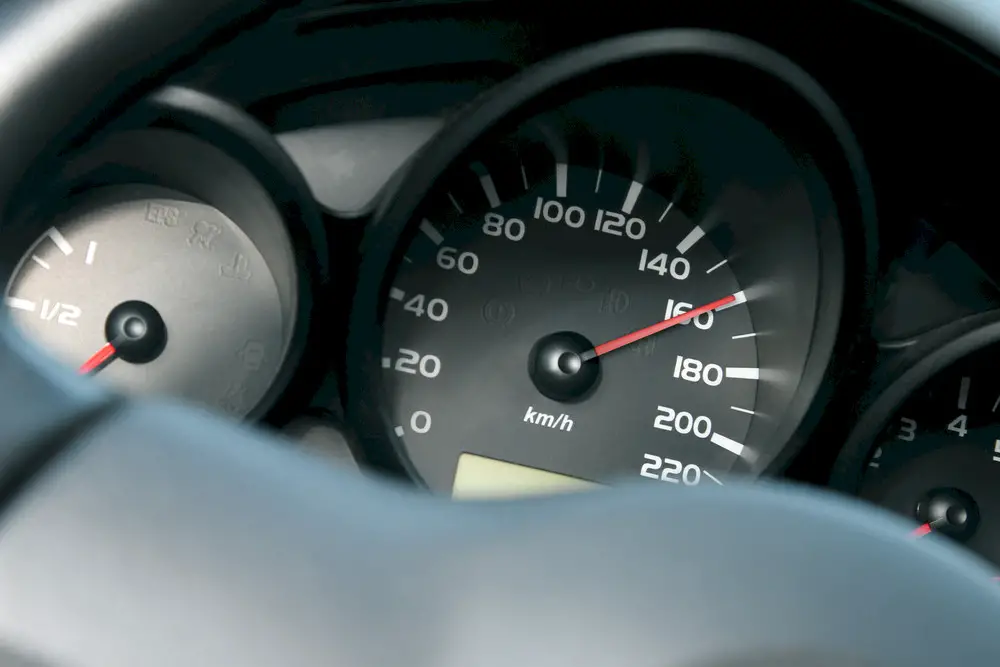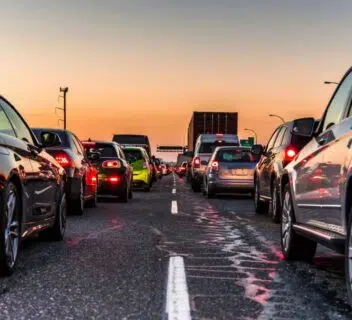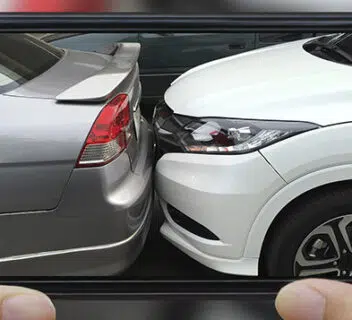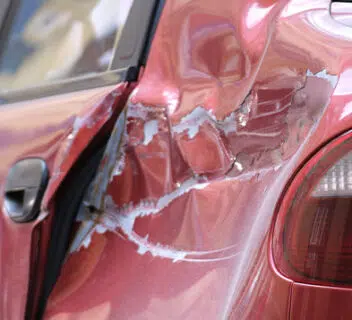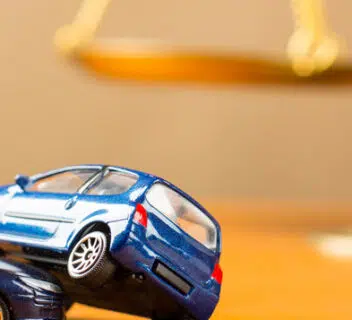Across the United States, single-vehicle accidents are common. However, when people envision a typical car crash, they often think it involves two vehicles. As a result, one-car accidents where no one admits fault or no one else is involved are not usually perceived as qualified for a legal claim. After all, if the driver who caused harm, the defendant, and the driver who received the injury, the plaintiff, are not both present during the accident, is it even a legal claim?
What Are the Odds of Having a Single Car Accident?
Single vehicle collisions occur with surprising frequency, and they do not always involve two vehicles. According to the Insurance Institute for Highway Safety (IIHS), in the United States, 9,973 deaths linked to single vehicle collisions occurred in 2019. As such, it is fair to say that single vehicle collisions are a problem area for major and minor car accidents that deserve more attention.
If you have an injury as the result of a single vehicle accident, you may find your case strategy requires a more skillful touch. For free lawyer consultation over the phone, call 1-800-THE-LAW2 and connect to an experienced car accident attorney near you in our network.
Curious about single vehicle collisions? Check out our short video on the subject below, or keep reading!
WATCH THE LATEST VIDEO SHORT FROM 1-800-THE-LAW2: Single Vehicle Accident video on Youtube
When Is a Driver Liable for a Single Vehicle Accident?
In a single-vehicle collision scenario, a car accident where no one else is involved, it’s not always obvious whether someone can be legally liable for injuries. This stands in stark contrast to car accident scenarios where liability is obvious, such as a drunk driver accident. Whereas in DUI cases, there is clearly a driver in the wrong.
However, in a single vehicle crash, that is not always the case. There are at-fault single car accidents, and no-fault single car accidents.
Liability is Not Obvious in a Single Vehicle Accident
To determine liability, a comprehensive evaluation of evidence is necessary. In the early stages of any legal claim, the assistance of an experienced car accident attorney is invaluable. As the injured person, you might not realize that you have an actionable claim for damages under the law.
An attorney can determine who is potentially liable, and how much they potentially owe you. Naturally, this has an impact on your legal claims for a single car accident. No insurance? If you lack proper insurance coverage, it’s much more critical to work with an attorney, as you won’t have any benefits to fall back on if you don’t sue and recover damages.
What Does It Mean to be in a Single Car Crash?
In a single vehicle crash, there is no driver who collided with your vehicle. Thus, you’ll have to explore other avenues for damages recovery and legal compensation.
Who Can You Sue in a Single Vehicle Collision?
In the aftermath of a single-vehicle collision, it might seem like the driver is the only party that can be held responsible. However, this is not always the case. Numerous other parties might share in the liability, depending on the specifics of the accident. A few examples are:
- Vehicle manufacturer: If a defect in the vehicle contributed to the accident, the manufacturer could be held liable. This could be anything from brake failure to a fault in the steering system. In these cases, you may have a product liability claim against the vehicle manufacturer or possibly against the manufacturer of the specific defective part.
- Government or other public agency: Poorly maintained roads, malfunctioning traffic lights, or poorly designed roadways can all contribute to single-vehicle collisions. If your accident was caused by such issues, the government agency responsible for maintaining the roads might be held liable.
- Private business and/or property owner: If a private business or property owner’s negligence contributed to the accident, they could be held liable. For example, if a business failed to properly maintain its parking lot, causing you to have an accident, they might be held responsible.
- Negligent drivers: Sometimes, other drivers can contribute to your accident without being directly involved. For instance, if a driver cut you off, causing you to swerve and crash, they could be held liable even if their vehicle didn’t physically contact yours.
- Other Parties: Depending on the specifics of your accident, other parties might also be held liable. For instance, a construction company that left hazardous conditions on the road could potentially be held responsible for an accident.
- and more!
What are the Two Collisions that Happen in a Crash?
Here are three examples of one car accident cases where no one admits fault, yet another party is potentially responsible. They are:
- Tree accident example
- DUI crash example
- Hydroplaning Example
Tree Accident Example
For the first example, suppose you have an injury that resulted from a fallen tree while driving. Here’s what happened. The tree was located on city property, and it was poorly maintained. The city made no proper inspections, and thereby allowed the tree to become structurally damaged.
As a result of improper maintenance, it fell on a nearby car. Specifically, the tree accident involved your car, the tree, and no other vehicle. If this happened to you, you could sue the City and recover compensation for the one car accident, even though it involved no one else.
DUI Crash Example
In the second example, imagine your injury was a single vehicle collision that resulted from a DUI crash. This is what happened. A drunk driver swerved into your lane, and you suddenly switched lanes to avoid a car wreck.
In turn, you lost control and crashed your vehicle. Under these circumstances, you can sue the drunk driver despite the fact that they never actually touched your vehicle.
Hydroplaning Example
Consider this scenario, where a single car accident occurs due to hydroplaning. Here’s how it unfolded. You were driving down a city street during a rainstorm. The city was responsible for maintaining the drainage systems on this street, but had neglected to do so. The lack of proper drainage, combined with the heavy rainfall, resulted in an excessive amount of water accumulating on the road.
As you drove over the waterlogged area, your car began to hydroplane. Despite your attempts to regain control, your car skidded off the road and crashed, causing you significant injuries. Even though no other vehicle was involved in this accident, the city’s negligence in maintaining the drainage system on the street resulted in hazardous conditions that led to your accident.
In this case, you could potentially file a lawsuit against the city, seeking compensation for the injuries you suffered in this single car accident of hydroplaning, even though no other vehicle was involved.
Leaving The Scene Of An Accident
Here’s an important single care collision advice:
If you’ve been in a single vehicle collision, avoid leaving the scene of the single car accident until you can do everything needed to preserve your legal claims. This may involve recording pictures and video evidence of the car crash scene, calling an attorney to help you physically evaluate the situation, and speaking to nearby witnesses to get their contact information. Many times, witnesses are a useful resource to prove that your version of events is correct.
Since environmental hazards and road defects cause many single-vehicle accidents, it is important to record that information in detail. When possible, collect video evidence, take pictures, and write down every detail you observe and remember from the car crash.
Also, be sure to secure medical assistance as soon as possible. Failure to seek timely medical assistance can undermine your legal claims. So, if you are seriously injured, do not delay. Get the medical attention you need.
Do I Have to Report a Single Car Accident?
In the case of a single car accident, where you’re the only party involved, you may wonder if it’s necessary to report the incident. Whether you lose control due to your car hydroplaning on wet roads or cause property damage, it’s essential to understand the correct steps to follow.
- Call 911: After any accident, your first step should always be to call 911 if anyone has sustained injuries. The immediate reporting can also be helpful in a subsequent personal injury claim.
- At Fault: Even in a single car accident, you’re considered at fault. Thus, depending on your state’s laws, you may be legally required to report the accident, especially if it involves significant property damage or personal injury.
- Property Damage: If the accident caused property damage, it’s typically mandatory to report it to local law enforcement. Failing to do so may result in serious consequences, such as being charged with leaving the scene of an accident.
- Insurance Claim: Reporting the accident to your auto insurance company is crucial if you plan to file an insurance claim to cover property damage or medical bills resulting from the accident. However, don’t do so without the assistance of an attorney, as an attorney will ensure that you do not report anything that could undermine your claims.
- Call the Police: Even if it’s a minor accident, you should still call the police to report the incident. A police report provides an official record of the event and can be valuable when filing an insurance claim.
In short, you should report a single car accident to both the police and your insurance company to ensure you comply with the law and maintain your ability to seek compensation for any damages or injuries.
Contact 1-800-THE-LAW2 For Free Lawyer Consultation Over the Phone
If you had an injury as a result of a single vehicle accident, please call us today. In order to preserve your legal claim, it is important to contact a qualified attorney as soon as possible. Our network of highly skilled auto accident attorneys provide free lawyer consultation over the phone.
After investigating the evidence, your lawyer will develop a case strategy that may potentially lead to recovery of damages. Consultations over the phone are confidential.
Call us now to get connected to an experienced car accident attorney in 10 minutes or less. Legal consultation is free and confidential. If you decide to not move forward with the case, there is no commitment.
